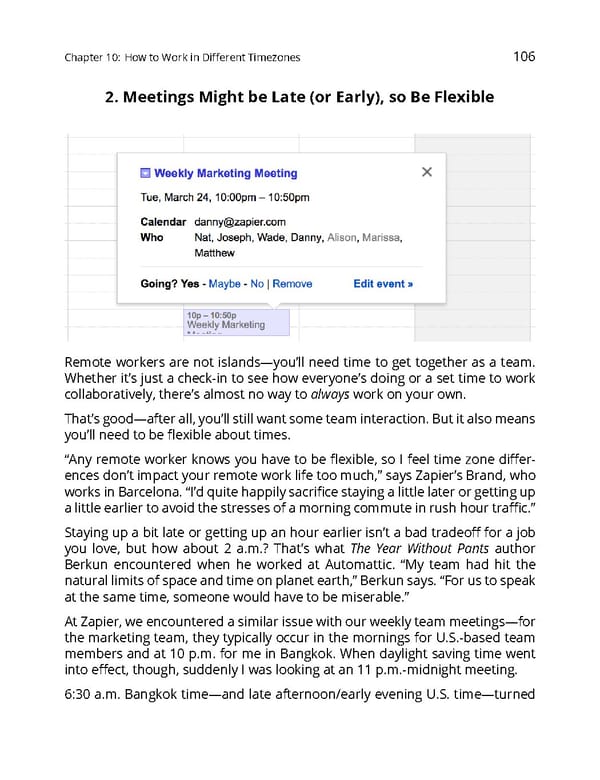Chapter10: HowtoWorkinDifferentTimezones 106 2. Meetings MightbeLate(orEarly),soBeFlexible Remote workers are not islands—you’ll need time to get together as a team. Whetherit’s just a check-in to see how everyone’s doing or a set time to work collaboratively, there’s almost no way to always work on your own. That’sgood—afterall,you’llstillwantsometeaminteraction.Butitalsomeans you’ll need to be flexible about times. “Any remote worker knows you have to be flexible, so I feel time zone differ- encesdon’timpactyourremoteworklifetoomuch,”saysZapier’sBrand,who worksinBarcelona.“I’dquitehappilysacrificestayingalittlelaterorgettingup alittle earlier to avoid the stresses of a morning commute in rush hour traffic.” Staying up a bit late or getting up an hour earlier isn’t a bad tradeoff for a job you love, but how about 2 a.m.? That’s what The Year Without Pants author Berkun encountered when he worked at Automattic. “My team had hit the naturallimitsofspaceandtimeonplanetearth,”Berkunsays.“Forustospeak at the same time, someone would have to be miserable.” AtZapier,weencounteredasimilarissuewithourweeklyteammeetings—for the marketing team, they typically occur in the mornings for U.S.-based team membersandat10p.m.formeinBangkok.Whendaylightsaving time went into effect, though, suddenly I was looking at an 11 p.m.-midnight meeting. 6:30 a.m. Bangkok time—and late afternoon/early evening U.S. time—turned
 The Ultimate Guide to Remote Work Page 109 Page 111
The Ultimate Guide to Remote Work Page 109 Page 111